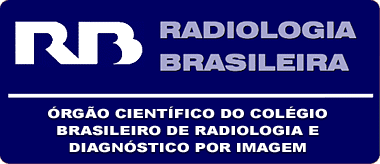Abstract
Objective:
To compare costs between treatment strategies employed prior to and after prostate-specific membrane antigen positron emission tomography/computed tomography (PSMA PET/CT) via the Brazilian Unified Health Care System and their impact on the therapeutic management of biochemical recurrence of prostate cancer.
Materials and Methods:
The referring physicians were surveyed on their treatment intentions (strategies) at two different time points: prior to and after PSMA PET/CT. Cost comparison results are presented as median (IQR) for each of the two strategies. The shift in therapeutic management after PSMA PET/CT was also analyzed.
Results:
The study sample included 59 patients (mean age: 65.9 years). The PSMA PET/CT result was considered positive in 38 patients (64.4%) and was found to have an impact on the treatment strategy in for 36 patients (61.0%). Prior to PSMA PET/CT, salvage therapy (i.e., treatment with curative intent) was the intended treatment for most patients, and that was significantly less so after the examination (76.3% vs. 45.8%; p < 0.001). Conversely, a strategy involving systemic (i.e., palliative) therapy became more common after PSMA PET/CT (23.7% vs. 54.2%; p < 0.001). The after-PSMA PET/CT strategy presented higher overall costs than did the before-PSMA PET/CT strategy, in all scenarios evaluated. In all scenarios, nearly half of this cost difference was related to the cost of the PSMA PET/CT itself, the remainder being related to the new treatment choices that stemmed from knowledge of the PSMA PET/CT findings.
Conclusion:
For patients treated within the Brazilian Unified Health Care System, PSMA PET/CT presented higher costs in comparison with conventional imaging methods. Adding PSMA PET/CT to the workflow had an impact on therapeutic management, mainly representing a shift from futile curative treatments to systemic palliative ones. The amount of funds that could potentially be saved by not providing such futile treatments would suffice to evaluate roughly two patients with PSMA PET/CT scans for each futile treatment strategy avoided.
Keywords:
Positron emission tomography computed tomography; Prostatic neoplasms/diagnostic imaging; Neoplasm recurrence, local/therapy

 Thumbnail
Thumbnail
 Thumbnail
Thumbnail
 Thumbnail
Thumbnail
 Thumbnail
Thumbnail



